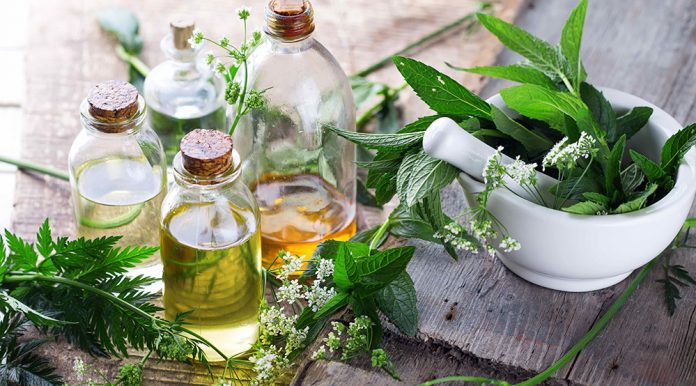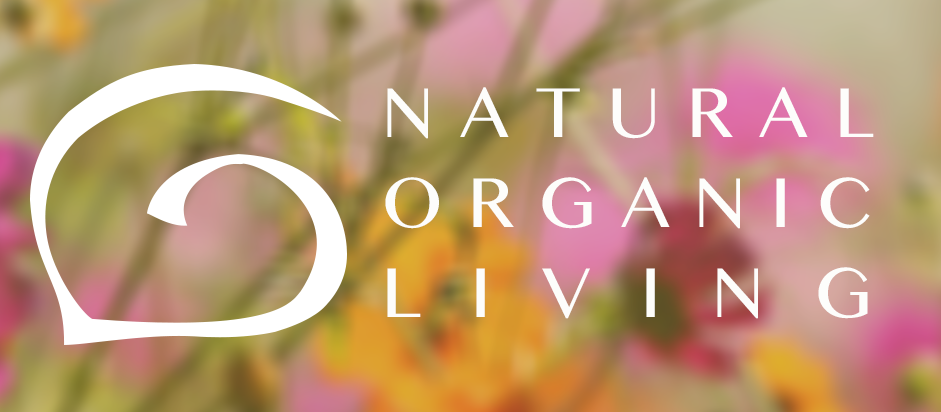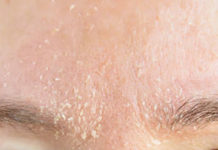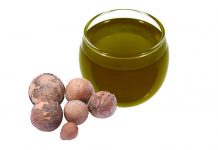
Organic beauty products is an interesting topic, there is a growing demand for this area of the market. This market is expanding and will continue to expand. Here we will look at the view of why this area is expanding in the beauty market and consumer demand.
Understanding organic products and cosmetics
Organic cosmetics are considered a “green revolution” for your beauty.
Organic cosmetics are now considered in its’ highest “peak” of natural cosmetics. The growing power of organic cosmetics and/or organic skin care is described by the phrase “Going greens’ is your beautification revolution”.
However, many people are still unclear and confused organic cosmetics.

What are organic products?
According to the Organic Consumers Association, organic products in general are beauty products of organic origin, in particular, differ from those of conventional products in their safety and regulatory properties. It is also extremely strict.
To be considered organic, the product has to go through a lot of testing and expensive to be certified as organic. The process can be overwhelming to manufacturers, causing many manufacturers refusing to get their product to certify as organic products despite the fact that their products contain the standard organic ingredients.
The US Department of Agriculture sets the US Organic product standard. Australian Department of Agriculture (ADA) set Australia standards. There are also French ECOCERT standards, COSMOS standards of some European countries, NPA standard, etc. When seen on products labelled USDA Organic, OTCO, ECOCERT … on the package means that the product has been certified by the prestigious organisation identified organic ingredients in the product.
However, the identification of organic products is complex and divided into several product groups.
Organic classification
There are four types of organic certification that the ADA and the USADA classified and grants:
– 100% organic.
– organic (contains at least 95% organic)
– made with organic ingredients (at least 70% non-organic)
– Organic ingredients (70% organic or less)
The first two types are labelled as organic but the lower half the organic labelled have to be specified to only the items that are organic in the product list.
By organic standards, certified organic products must be produced through traditional farming practices, the cultivation of which must ensure ecological balance and preserve the diversity of the environment and the soil, containing toxic substances. Especially organic fertilizers, compost from waste, sprays, and preservatives are not used.
The application of organic cosmetics
Most of us know that most chemicals are used in traditional skin care cosmetics and they can have potentially harmful consequences in the future. Organic products approach the other way, using only 100% natural ingredients, no toxic chemicals, so you are completely assured of their use and safety for your health.
The organic ingredients in cosmetics will help users avoid adverse effects from chemicals (preservatives, colouring agents, etc). Chemicals are commonly in beauty products today with unknown potential harm. Moreover, with these chemicals eliminated in organic cosmetics and only natural ingredients, not only does the product beautify you, but the pure organic products penetrate each on your cell to prevent and eliminate the damage on your skin and reduce or prevent diseases.
How to know about organic products
To identify whether the products are organic, pay attention to the presence of certification stamps on the product packaging. Below are some of the organic stamp in from ADA and USDA, showing that the product meets organic standards set by an association.


Also, there are many organic products but no certification stamps for the reasons mentioned above (testing costs are expensive, so manufacturers have not done right). However, we can still identify these products by looking carefully at the ingredient list on the package. Typically, a component is organic will always have the word “organic” before. For example, the name of the aloe vera ingredient will be written as “organic aloe vera” instead of “aloe vera”.
One more primary point to recognise organic products is that organic products often avoid the use of six types of chemicals derived from gasoline that can be harmful to your health and the environment. These 6 chemicals are Vaseline, isopropyl alcohol (isopropanol), methyl alcohol (methanol), butyl-alcohol (butanol), ethyl alcohol (ethanol); sodium laureth / lauryl sulfate and related substances such as sodium lauryl ether sulfate, sodium lauryl ether sulphate; propylene glycol and polyethylene glycol; formaldehyde and parabens; artificial coloring; artificial smell
If not an organic product, the ingredients in it contain no name or, in the case of only natural extracts, “exact” extracted, such as pure lavender.
So, you can understand that for organic cosmetics, manufacturers must ensure that except for some cases of allergy, their products are not harming the health of the consumer.
On the market today, many types of cosmetics and foods are advertised in natural or organic ingredients when in fact they are not and are not completely safe. Even though there is products claim of 100% natural but it can still contain many toxic accumulate through the process of cultivation, processing, and preservation. Many of the products contain minimal amounts of herbal extracts in the rest of the compound. Silicones, parabens and synthetic fragrances (found in conventional cosmetics can damage DNA. Mineral oils: petroleum (can easily irritate the skin).
Therefore, users should be alert and do thorough label check before deciding to buy or use cosmetics that are on sale today.

Beauty comes from the most natural!!
Note on organic cosmetics
Organic cosmetics can guarantee your health, but it also has many points that make particular users are not satisfied.
According to women’s magazines such as Refine29 or She knows, organic cosmetics have the following weaknesses:
First of all, about preservation. By not using chemical preservatives, organic beauty care products are damaged easily and difficult to maintain. Especially some organic soaps. Organic soaps are rich in oils, so they are easy to melt in hot summer weather.
Also, some types of fresh masks are also only available for a few weeks. You need to store all kinds of skin care, organic cosmetics in a cool, airy, cool environment such as a refrigerator and should use it before the three months after opening the lid. With spring conditions easy to produce mould, the shelf life is further shortened.
Natural cosmetics and organic cosmetics often have a slow and annoying effect on new users. For example, organic cleansers usually do not or have very little foam. For people who are familiar with washing face with an industrial foaming cleanser, it’s difficult to accept organic cleaning products because it often gives off a sense unclean feeling.
Even some organic lotions also have oil splashes, so it’s recommended that you use a small scoop and mix it up before application.
Organic cosmetics also do not have the aroma (by artificial flavour) as industrial cosmetics. In contrast, although the composition of 100% natural but the smell of organic cosmetics is extremely uncomfortable. For example, creams made from wings and rose oil will have a slightly rose-like odour.

Using organic products is also a way for you to protect the environment!!!
The packaging of organic products is not as glamorous as its quality. Most manufacturers try to focus on the most natural feeling possible, so the packaging of organic cosmetics is quite straightforward, simple and less luscious. Many people believe that the shell of many of these products looks unattractive and eye-catching.
Even with organic products, if not carefully selected, you can still get irritated when used. Some people are allergic to certain plants, so they will also be allergic to the products containing the extracts from those plants.
Organic cosmetics are safe with women in the delivery period. However, you still need to avoid products containing essential oils that can harm the foetus such as wormwood, cinnamon, clove, rosemary, wintergreen, thyme, tansy.
Finally, because raw materials are a rigorous production process, organic cosmetics are relatively expensive compared to conventional cosmetics.
Environmentally sustainable
Organic products, in theory, is very environmentally sustainable. The farmer and manufacturer put the environment in mind when they grow, harvest and process their produce and product. The certified body does look into this process and ensure that they live up to their name. Hence organic ingredient is so well thought of, especially with the current environmental issue we have in this era. Having this logo put ease in an individual mind showing that the company does care about our planet future.
Knowing all these reasons, ideal, nature or standard created by the certified bodies to the concept and ideals of organic certification. It is clearly understood why the organic certified product is increasing in its market share and demand. And for us consumer why we support it in what way we can.














Great post. Slightly offtopic, I am in the midst of getting my girlfriend a steamy present and I am thinking along the lines of lingerie. I am currently looking at Peaches and Screams (peachesandscreams.co.uk) and was wondering whether anyone has any experience with this online lingerie shop? What would you guys recommend I get my girlfriend? The last thing I want to do is offend her so I am looking for sensible lingerie suggestions – nothing too extreme. Thank you in advance!
Thank you Tony! Unfortunately, I cannot help you here. Everyone has their own taste and preference it hard to give you advice on this when I do not know her personally. Thanks for your comment.
I’m really getting into the healthy lifestyle. Great bit of info!
thank you!!